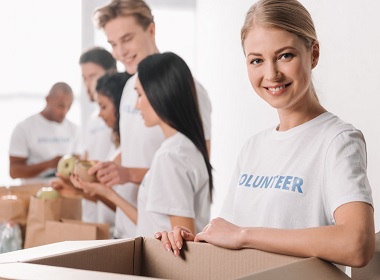

Prosocial behavior: acquired, not inherent
German scientist Anne Böckler-Raettig and her team conducted a study on training people in the skill of prosocial behavior – being less selfish and more caring towards others and what is good for the group.
Researchers scrutinized the efficiency of different mental trainings on the development of altruistic behavior.
In order to design the trainings, the team went through data from versatile disciplines: biology, psychology, philosophy, math, economy, etc.
Being prosocial means being able to cope with common problems that affect the whole group, as opposed to caring just for personal gain and advantage.
The research results demonstrated that human ability to be altruistic is quite flexible and may be enhanced in simple everyday training, Science Daily reported.
Böckler-Raettig believes that prosociality has always been a part of human development but it was treated as an insignificant and unnecessary. But in our times altruistic attitudes suddenly became a matter of research, with some previous studies showing that egoists earn less and also leave fewer kids.
How to become altruistic
Several trainings have been tested on participants of the study.
The participants tried different kinds of psychological exercises for 9 months.
- The first type of training was about concentrating on the present, accepting and listening to your body – this one resembles popular ‘mindfulness’ classes that help people dealing with stress.
- The second type of exercises aimed to develop particularly important social characteristics: empathy, appreciation, brotherhood, and willingness to help.
- The third type of trainings were designed to improve the ability to understand actions of other people and improve learning skills.
Only the second type of exercises has proven to be effective in enhancing the degree of prosocial behavior in group members.
Most participants became more generous, ready to provide assistance to a stranger, and make larger donations for various socially important causes.
Thus, the main result of the study is clear: Social skills, including altruism, can be trained.
In order to make the altruistic behavior more achievable, there are mental exercises that are free and simple to use. These practices should be certainly implemented into school curriculums, public health institutions, and workplaces as an effective method to move toward a caring society, scientists believe.
Would you like to become more altruistic?
Since we know that egoists earn less, being prosocial not only serves the society, but also brings non-direct benefits to a person in the form of more promotions and higher earnings. This should make even the most egotistic person to stop and think, what’s best for them: To keep pulling the blanket to their side or be more generous and concentrate on the common good?
If you think that being kinder is something you’d like to try, check the details of the research. It could be just the thing that will help you to move to the nest step in your life!
Share this article













On the one hand, I would love to be less selfish and more altruistic. On the other hand, modern world is such a voilent and rough place. Many people won’t appreciate your kindness and desire to be helpful. It’s so difficult to find the right balance and not to do yourself a disservice.
Everyone knows that being selfish is bad. But i think its very important to have a healthy ego. Being kind to people we wait the same behavior from others, that usually dont even notice our efforts. In this case we can become more angry, feeling offended. What is more, excessive care about our loved ones can violate personal space which is not good for our relationships.
It is very good that altruism and empathy can be developed. As a mother, it is very important for me to find out, now I know that these traits can be laid from childhood. I am learning myself to be more human. I try to help others – friends and strangers. I help old people cross the road and give them place in transport, although I have not often done this before.